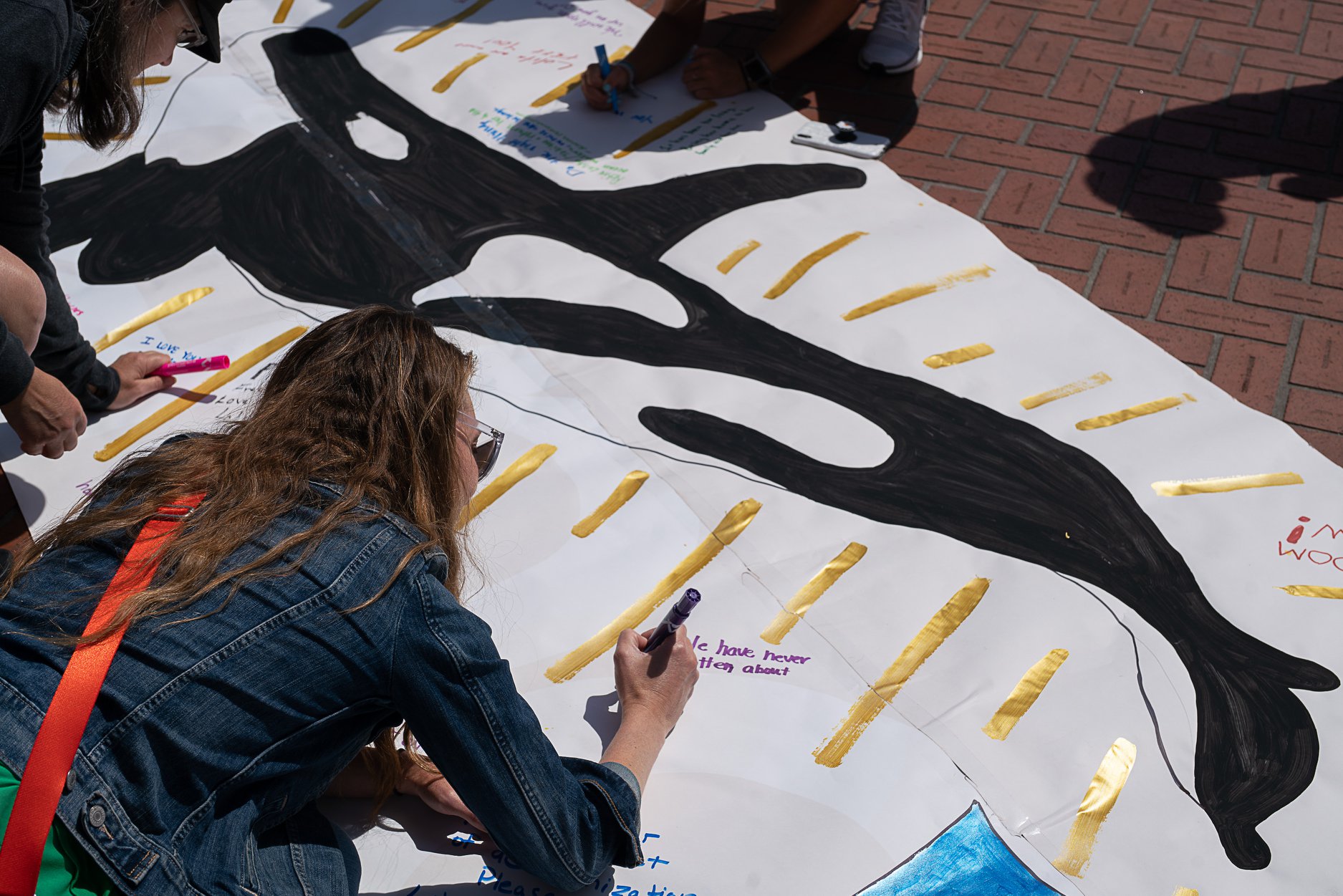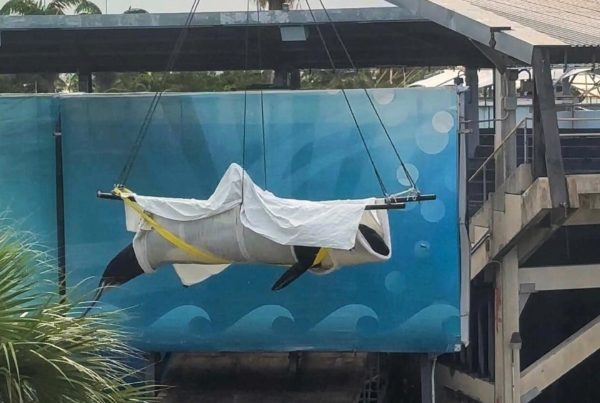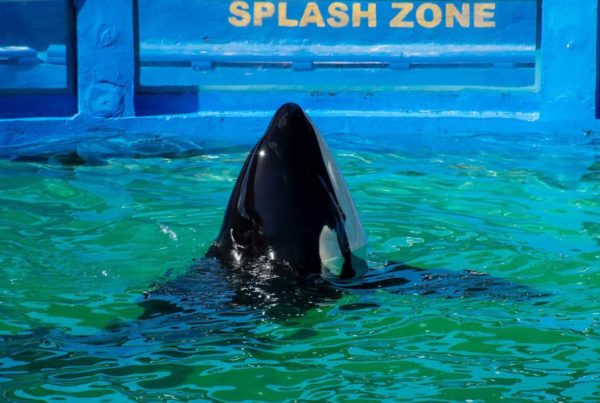Lolita, a 20-foot-long orca, spends her days at the Miami Seaquarium splashing crowds with pool water and giving performers rides in exchange for treats. She was captured in the Puget Sound in 1970. Nearly 50 years later, activists continue to fight for her return.
Today, you might spot those activists in downtown Portland.
One of 17 coordinated worldwide rallies by the “Until Lolita is Home” campaign will advocate for the whale’s retirement at Pioneer Courthouse Square this morning. The group hopes to see her moved to a larger sea pen, a blocked-off enclosure in the Puget Sound itself.
These rallies come after decades of advocacy for Lolita’s move—which gained brief momentum after the movie Free Willy and again after the death of Hugo, Lolita’s tank-mate, who died of a brain aneurysm in 1980 after repeatedly ramming his head into the sides of their tank.
The “Liberation 4 Lolita” rally in Portland will feature a prayer by Chief Jesse Nightwalker of the Palouse Tribe, an announcement from the Lummi Nation, and a speech from Lewis & Clark School of Law professor Delcianna Winders, who represents People for the Ethical Treatment of Animals in its current lawsuit against the Seaquarium.
Winders says that the Seaquarium pool, only three times Lolita’s length with a concrete platform in the center, violates sizing requirements from the USDA’s Animal Welfare Act, but that the agency has not enforced the rules.
“The Animal Welfare Act requirements are woefully inadequate and outdated, but if they were enforced they would mean that she couldn’t be held in what is the smallest orca tank in the world,” said Winders.
Winders, like many other advocates, says that though a bigger pool would be an improvement, a sea pen is the best option. She also says it’s not too late.
“She has suffered tremendously. She is an extremely social animal who’s been held without the company of a single other orca for many years, and she could have many years ahead of her,” said Winders. “After all of these years of suffering she deserves to have just a few years to know what it’s like to be an orca.”
The Seaquarium maintains that Lolita is better off with them, and in a place she knows.
In a statement last year to the Lummi Nation, who bought space to build the sea pen, the Seaquarium’s general manager Eric Eimstad wrote “a sea pen in Puget Sound or anywhere else would be very stressful to her and potentially fatal… It would be reckless and cruel to treat her life as an experiment and jeopardize her health to consider such a move.”
Scientists have long debated the risk of moving Lolita.
A 2017 article by the Miami Herald quoted many experts who believed the whale would not be able to adjust, both mentally and physically, to such a big move. Others, like biologist Ken Balcomb of the Center for Whale Research who studies orcas in the Pacific Northwest, have spent decades advocating to move her to a sea pen where she can swim comfortably and hear familiar whale calls.
A U.S. District Court of Appeals ruling in 2018 denied the last lawsuit from PETA and other organizations advocating for the move, citing Lolita’s age and the feasibility of moving her.
Michelle Seidelman, who is organizing the Portland rally for Lolita’s retirement, has been advocating for her release for over a decade. She says moving her is worth the risk.
“I honestly would rather see her live a few years in retirement in her natural surroundings and environment than see her live another 10 years as a prisoner,” Seidelman said. “I don’t know how she’s still alive.”
– Abbey McDonald, Wilamette Week




